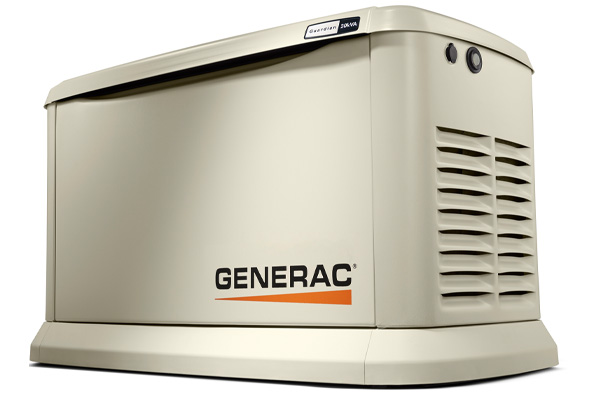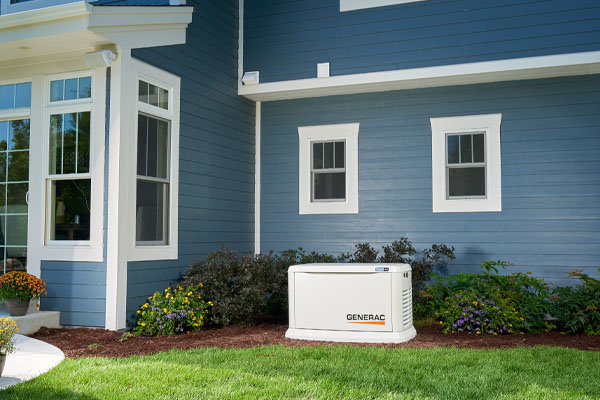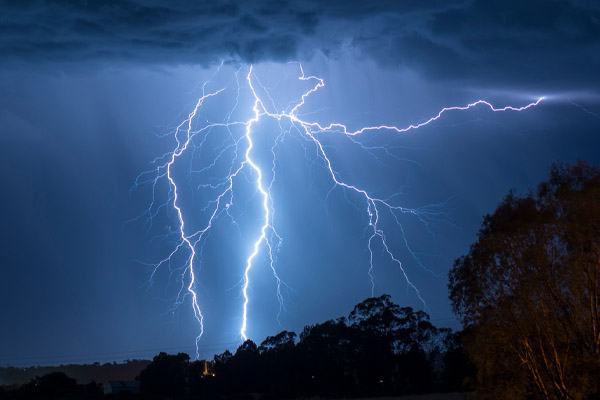 Despite a connection to the grid, you may still require a standby generator from time to time. You never know when an emergency will strike, so it’s a good idea to keep one on your property. The unit could power your lights, security system, or appliances during a power outage. However, it is not enough to simply store a whole-house generator in a corner. You must check it regularly and keep it in good shape with standby generator maintenance. Otherwise, it might not run when you need it the most. Read on to learn how to do this properly.
Despite a connection to the grid, you may still require a standby generator from time to time. You never know when an emergency will strike, so it’s a good idea to keep one on your property. The unit could power your lights, security system, or appliances during a power outage. However, it is not enough to simply store a whole-house generator in a corner. You must check it regularly and keep it in good shape with standby generator maintenance. Otherwise, it might not run when you need it the most. Read on to learn how to do this properly.
Generator Preventive Maintenance Schedule
Contents

Homeowners must learn the basics of power generator maintenance to conduct weekly and monthly tasks. Their diligence will help extend the unit’s service life and increase reliability during crises.
Capable technicians must take the lead in conducting advanced maintenance work. These professionals should be invited at least twice a year to conduct the biannual and annual tasks described below.
1. Weekly Generator Maintenance Tasks
- Put the generator on AUTO mode. Run the unit and check for errors.
- Ensure correct fuel type. Check for leaks around the unit.
- Keep the circuit breaker closed and secure.
2. Monthly Generator Maintenance Tasks
- Remove trash and debris around the perimeter.
- Make sure that there are no animals nesting inside the unit.
- Keep the oil level close to full for optimal performance.
- Check the coolant amount in the overflow tank.
- Verify that the battery is working and corrosion-free.
- Hunt for loose wires and terminal corrosion.
- Inspect the gas pipes for signs of damage.
3. Biannual Whole-House Generator Tasks
- A licensed service technician should perform a full battery diagnostic.
- Pros must inspect enclosure, drive belts, coolant heater, exhaust, and induction pipes.
- Examine AC wiring, electrical system, fuel system, lubrication, and coolant lines.
4. Annual Standby Generator Tasks
- Replace the air filter, fuel filter, oil filter, spark plug, and generator oil.
- Inspect the alternator for dirt, moisture, and direct heat.
- Examine the transfer switch and conduct load bank testing.
- Clean the crankcase breather and flush the cooling system, if needed.
- Test and recondition fuel in diesel generators. Remove water from the tank.
Tips For Standby Generator Maintenance
1. Consider The Environment

Standby generator maintenance consists of a long list of tasks with a wide range of difficulty and frequency. Before you set out to do any of them, you must consider several factors that affect the state of the generator. Foremost of these is the environment in which you have chosen to place the unit. Is it in a space where you control the temperature and humidity? Is it outdoors where it is more vulnerable to the elements? Does it have adequate protection from the sun, rain, and debris? What is the climate like in your region? Is it hot, dry, and dusty? Is it cold, wet, and windy? The harsher the environment, the more important maintenance becomes.
2. Assess The Whole-House Generator Workload
Another thing to think about is the number of times that you had to use the generator in the past year, as well as the duration of those power outages. Some places rarely experience power disruptions while others expect them during certain times of the year due to recurring issues. Outages can last for just a few minutes or extend for several days depending on the problems that caused them. A unit that runs frequently will wear out its components faster. Therefore, it requires greater attention than a generator that is rarely used.
3. Factor The Weather
The weather will have a big impact on a generator. Some areas are prone to storms during which strong winds can topple telephone poles and other infrastructure. Trees can fall, and their branches may bring down electrical wires in their vicinity. Be mindful of the months when these events are likely to happen. Schedule maintenance visits from professionals beforehand so that you will have no worries heading into the storm season. The same is true for people who live up north where winter can be unpredictable. Finish vital maintenance tasks a month or so before harsh weather hits.
4. Check Generator History
If you have just bought a house that includes a standby generator, then it is in your best interest to know the history of the unit. Talk to the previous owner, if possible, and ask them about important details such as the unit’s age and state. See if they still have the maintenance papers signed by the technician who worked on it. Inquire about the last time that the unit was checked by a professional. You are lucky if it got regular maintenance and is fully operational. If not, then you need to contact a local expert to come by and give it a look.
5. Get Help for Advanced Power Generator Maintenance
While most maintenance tasks are within the capacity of homeowners, others are better left to professionals. Advanced jobs are complex and time-consuming. They require experts who have the training and experience to do them well. Professional technicians can spot problems right away whereas ordinary people might not even notice them. They can conduct thorough inspections and diagnostic tests. Also, they can tackle technical tasks and bring special tools to finish these faster. They may carry common spare parts to conduct replacements quickly whenever necessary. Technicians will clean every nook and cranny. The generator will run like new once they are done with it.
Call Professionals for Other Concerns
Technicians can also assist with operational safety to keep your family out of harm’s way. Problems can emerge without warning. If you notice something off with your unit, then call for help as soon as you can. You may also try to reach them if you see a significant drop in generator efficiency. They will find the root cause and make improvements. Lastly, you can arrange a long-term maintenance agreement to guarantee regular visits while enjoying substantial savings.
Conclusion
Modern life is highly dependent on machines, and machines need power to run. Homes are filled with appliances for work, chores, entertainment, comfort, and security. During a power outage, all of these will stop working unless we have a backup plan. Prudent homeowners get a standby generator to preserve normalcy. However, they must maintain these units and hire professionals to prepare for emergencies.
Call PFO Heating & Air Conditioning For All Your Standby Generator Needs
 PFO Heating & Air Conditioning is one of the leading generator installers in the Greater Princeton, NJ area. Aside from backup generator installation, we also offer replacements, maintenance, and repair services. We hire highly skilled service contractors who are well trained in the most modern HVAC and generator techniques and methods.
PFO Heating & Air Conditioning is one of the leading generator installers in the Greater Princeton, NJ area. Aside from backup generator installation, we also offer replacements, maintenance, and repair services. We hire highly skilled service contractors who are well trained in the most modern HVAC and generator techniques and methods.
Contact PFO Heating & Air Conditioning via phone call or online today to learn more about whole-house generator installation. This way, you get all generator queries you have answered by industry experts. We offer free, in-home estimates.
Click here to contact us now or call us at (800) 253-9001 to find out more!



